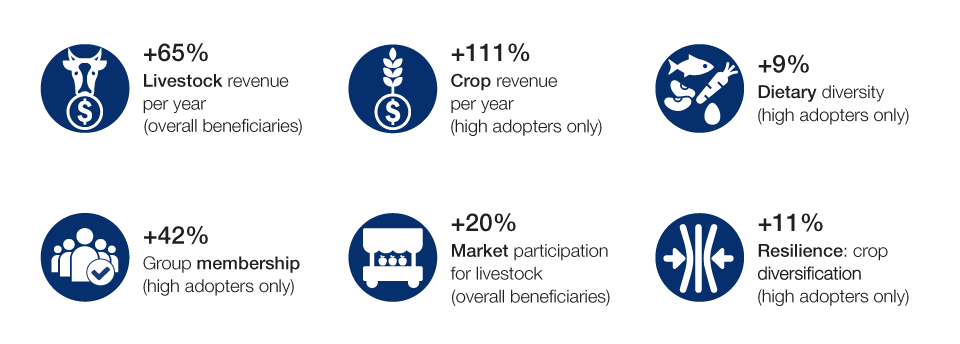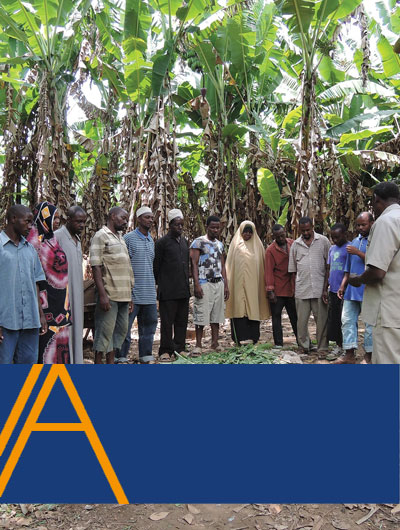Impact assessment: Agricultural Sector Development Programme–Livestock (ASDP-L) and Agriculture Service Support Programme (ASSP)
Impact assessment: Agricultural Sector Development Programme–Livestock (ASDP-L) and Agriculture Service Support Programme (ASSP)
Despite decades of research and development of technologies and innovations which improve farming practices and productivity, small farmers in Tanzania continue to use technologies and practices which do not favour high yields and economic returns. The Agricultural Sector Development Programme–Livestock (ASDP-L) and the Agricultural Services Support Programme (ASSP) were implemented in Zanzibar, Tanzania to increase agricultural productivity and profitability, generate employment in rural areas, and ensure food security by facilitating farmer-to-farmer knowledge sharing of best practices.
The projects trained selected facilitators from each local community in new techniques of livestock rearing and crop production, who then demonstrated these techniques to farmers through Farmer Field Schools. Farmers were actively engaged in learning, problem solving and promoting the new techniques.
The ASDP-L Farmer Field School curriculum concentrated on livestock rearing, including artificial insemination, calf rearing, linkages between farms and markets, and delivery of services from veterinary and animal health workers. The field schools run by ASSP were tailored to crop producers, training them in organic farming, land preparation, soil fertility maintenance, use of manure, and erosion control. They also promoted planting of highly nutritious crops. An end line impact assessment of both projects was conducted using qualitative and quantitative data from 2,082 participating and non-participating households.
Key impact estimates
An impact estimate is calculated as the difference in mean outcomes between the treatment group (project participants) and the comparison group (non-participants).
Through these projects, more than 28,000 rural households learned new farming practices in 1500 Farmer Field Schools across nine districts, leading to the following positive impacts:

Main lessons
This joint impact assessment of the Farmer Field Schools approach to rural development provided the following lessons:
- Livestock farmers and farmers growing both crops and livestock were more likely to adopt agricultural practices promoted by Farmer Field Schools. Adoption rates were higher still when an extension worker, rather than a farmer, facilitated the curriculum. This was likely due to the level of technical detail required for effective learning.
- Farmer Field Schools can be considered an effective means of promoting good agricultural practices, as they induced farmers to invest more in farming inputs such as combining organic and inorganic fertilizers.
- The collective learning approach of Farmer Field Schools can stimulate group and individual empowerment, particularly regarding decisions on productive activities, income expenditure and mobility.
- Farmer Field Schools may benefit from more focused curricula that tailor the promoted technologies to the local agro-ecological context, as a means of promoting uptake by farmers. The large variety of FFS training was not conducive to generating high impact across all promoted activities.
